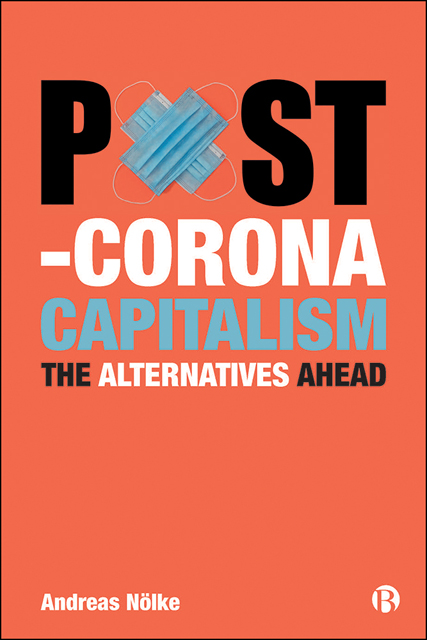Book contents
- Frontmatter
- Dedication
- Contents
- List of Abbreviations
- Acknowledgements
- Preface
- 1 Introduction: Confronting a Multidimensional Crisis of Capitalism
- Part I Capitalism and Society
- Part II Domestic Institutions of Capitalism on the Demand Side
- Part III Domestic Institutions of Capitalism on the Supply Side
- Part IV The International Institutions of Capitalism
- Part V Anthropocene Capitalism
- Part VI Geo-economic Shifts in Global Capitalism
- Part VII Ideologies in Contemporary Capitalism
- References
- Index
16 - Competition Policy: Economic Concentration as Vice or Virtue?
Published online by Cambridge University Press: 13 October 2022
- Frontmatter
- Dedication
- Contents
- List of Abbreviations
- Acknowledgements
- Preface
- 1 Introduction: Confronting a Multidimensional Crisis of Capitalism
- Part I Capitalism and Society
- Part II Domestic Institutions of Capitalism on the Demand Side
- Part III Domestic Institutions of Capitalism on the Supply Side
- Part IV The International Institutions of Capitalism
- Part V Anthropocene Capitalism
- Part VI Geo-economic Shifts in Global Capitalism
- Part VII Ideologies in Contemporary Capitalism
- References
- Index
Summary
Next to the tendency towards digitalization, the coronavirus crisis also has led to increasing concerns about economic concentration. This pertains to not only the strengthening of major digital companies such as Alphabet (Google holding company), Amazon and Facebook on the one side, but also the destruction of many small companies (for example, in retail) on the other. Is this an inevitable development or should governments interfere? Moreover, most competition authorities liberalized their usual cartel laws in order to allow companies to cooperate intensively for the production of scarce goods, particularly in the health sector. Will this lead to intensified cartelization in the future? Finally, the massive size of some governments’ stabilization policies for domestic business have led to concerns about unfair competition; for example, vis-a-vis companies based in fiscally less well-off economies. Shall we interdict rich governments to support their companies during the pandemic and the related recession, in order not to bias economic competition?
Competition policy and Political Economy
Most observers of modern economies agree on the usefulness of competition for economic well-being. They assume that competition in the market safeguards efficiency and innovation. Lack of competition, in the form of monopolies and cartels, in contrast, often is perceived to lead to wasteful behaviour and the unjust collection of rents (Büthe, 2019). Competition policy traditionally is a topic mainly studied in Economics and Law. Economists, for example, study the effects of economic concentration on consumer prices. Law scholars, for example, establish whether certain forms of inter-company cooperation have to be qualified as an unlawful cartel. More recently, however, competition policy has become an increasingly prominent topic in Political Economy.
We can distinguish two fields of competition policy. For one, competition authorities try to prevent the abuse of market dominance by single companies or a small group of companies. Core instruments include merger control; that is, checking whether the fusion of two companies or the takeover of one company by another leads to too much market power, and antitrust; that is, checking whether one company has already a too powerful position and investigating whether companies have formed cartels to the disadvantage of competitors or consumers.
- Type
- Chapter
- Information
- Post-Corona CapitalismThe Alternatives Ahead, pp. 101 - 106Publisher: Bristol University PressPrint publication year: 2022



